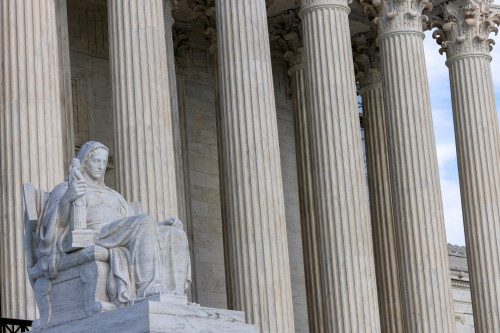By Andrew Chung
WASHINGTON (Reuters) -Minnesota can no longer enforce its law barring people younger than 21 years old from obtaining a permit to carry a handgun in public after the U.S. Supreme Court refused on Monday to hear its appeal of a judicial decision deeming the age restriction a violation of constitutional protections for gun rights.
The justices let stand a 2024 ruling by the St. Louis-based 8th U.S. Circuit Court of Appeals that the restriction violated the rights of people ages 18, 19 and 20 to keep and bear arms under the U.S. Constitution’s Second Amendment, declining to hear the Democratic-governed state’s appeal.
The case represented one of many challenges to gun restrictions at the state and federal levels that have emerged since the Supreme Court further widened gun rights in a landmark 2022 ruling recognizing for the first time a Second Amendment right to carry a handgun in public for self-defense.
Gun rights groups including the Minnesota Gun Owners Caucus, Second Amendment Foundation, Firearms Policy Coalition, as well as some of their members, challenged Minnesota’s age restriction in federal court.
“This ruling will have reverberations nationwide,” said Second Amendment Foundation director of legal operations Bill Sack, noting that the group is involved in multiple similar suits seeking to “restore the rights of young adults who face similarly unconstitutional laws in their home states.”
The Supreme Court’s action does not set a nationwide precedent but the 8th U.S. Circuit’s decision sets a standard in the seven states where it has jurisdiction: Minnesota as well as Arkansas, Iowa, Missouri, Nebraska, North Dakota and South Dakota.
More than 30 other states and the District of Columbia have similar restrictions on public carrying of firearms, reflecting concern that gun injuries are the leading cause of death among children and teens, Minnesota said in a court filing.
Courts “should not lightly set aside legislative attempts to address the increase in gun violence by young people,” the state added.
The state’s attorney general’s office did not immediately respond to a request for comment on Monday.
Minnesota had been enforcing the age restriction while its appeals played out in court. The state called the restriction “modest” considering that youths already have significant access to guns in Minnesota – including no age restriction when supervised by a parent or guardian – and by age 14 they can possess guns on their property or while hunting without supervision.
‘HISTORICAL TRADITION’
A judge sided with the challengers in 2023. The 8th Circuit upheld that decision, citing the Supreme Court’s 2022 ruling that announced a stringent test that required gun laws to be “consistent with the nation’s historical tradition of firearm regulation” in order to comply with the Second Amendment.
Minnesota did not present evidence of a suitable historical analogue, the 8th Circuit said. While a government may disarm those who pose a threat to the physical safety of others, 8th Circuit said, “Minnesota has failed to show that 18- to 20-year-olds pose such a threat.”
The Supreme Court’s 2022 ruling in the case called New York State Rifle and Pistol Association v. Bruen was one of three key decisions it has issued since 2008 that have broadened gun rights in a nation deeply divided over how to address firearms violence including frequent mass shootings. The United States has the world’s highest gun ownership rate.
The court last year upheld a federal law that makes it a crime for people under domestic violence restraining orders to have guns, clarifying that the Bruen test is not inflexible and that modern gun restrictions do not require a “historical twin” in order to be lawful.
The court on April 7 turned away a challenge to gun restrictions that New York adopted after the Bruen ruling.
In another gun-related case, the court on March 26 upheld a federal regulation targeting largely untraceable “ghost guns,” though that ruling did not center on Second Amendment issues.
Last year, the court upheld a federal law that makes it a crime for people under domestic violence restraining orders to have guns in a Second Amendment-related challenge but rejected a federal ban on “bump stock” devices that enable semiautomatic weapons to fire rapidly like machine guns in a case not focusing on Second Amendment rights.
(Reporting by Andrew Chung; Editing by Will Dunham)




